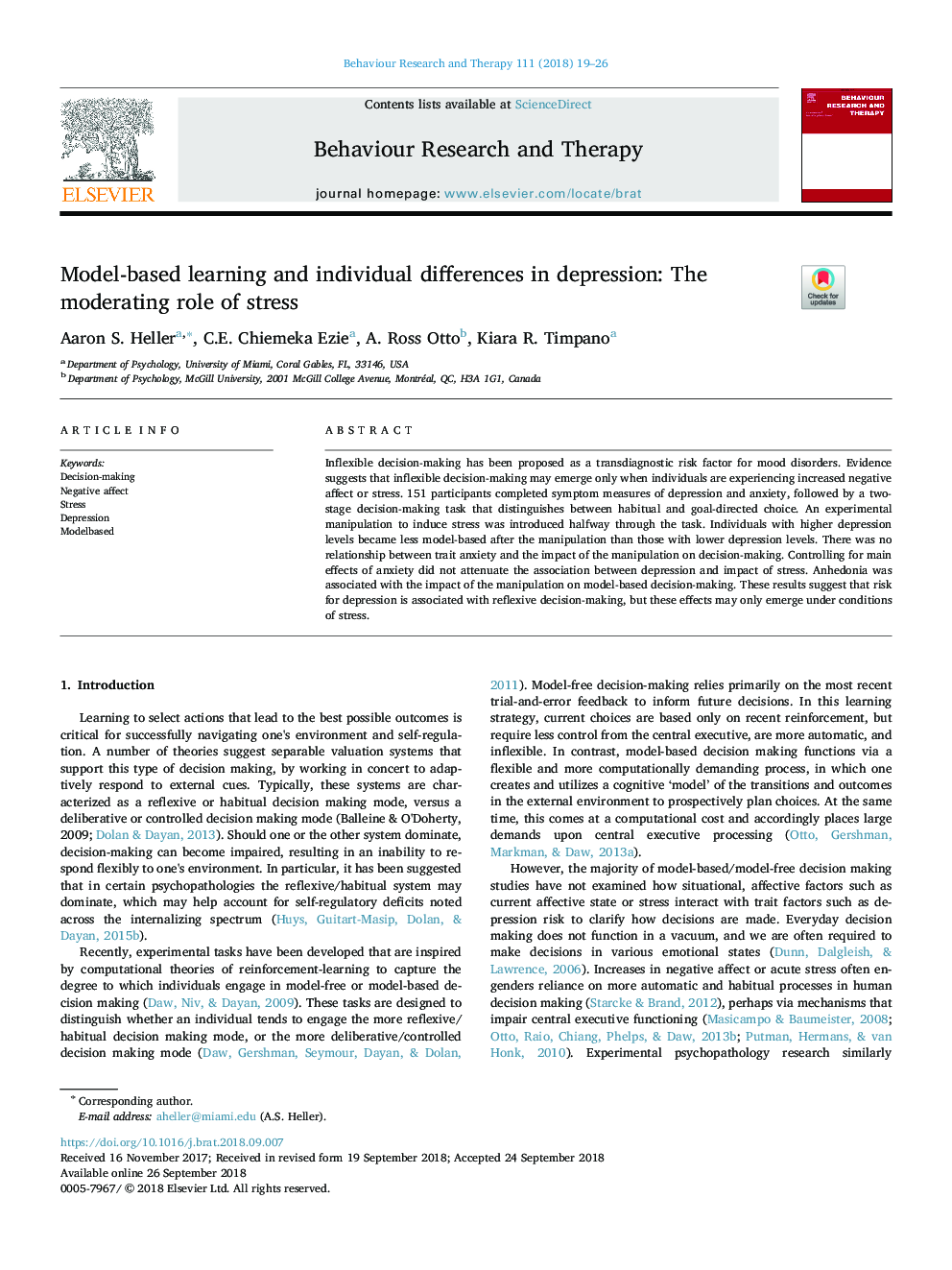| Article ID | Journal | Published Year | Pages | File Type |
|---|---|---|---|---|
| 11023462 | Behaviour Research and Therapy | 2018 | 8 Pages |
Abstract
Inflexible decision-making has been proposed as a transdiagnostic risk factor for mood disorders. Evidence suggests that inflexible decision-making may emerge only when individuals are experiencing increased negative affect or stress. 151 participants completed symptom measures of depression and anxiety, followed by a two-stage decision-making task that distinguishes between habitual and goal-directed choice. An experimental manipulation to induce stress was introduced halfway through the task. Individuals with higher depression levels became less model-based after the manipulation than those with lower depression levels. There was no relationship between trait anxiety and the impact of the manipulation on decision-making. Controlling for main effects of anxiety did not attenuate the association between depression and impact of stress. Anhedonia was associated with the impact of the manipulation on model-based decision-making. These results suggest that risk for depression is associated with reflexive decision-making, but these effects may only emerge under conditions of stress.
Related Topics
Health Sciences
Medicine and Dentistry
Psychiatry and Mental Health
Authors
Aaron S. Heller, C.E. Chiemeka Ezie, A. Ross Otto, Kiara R. Timpano,
